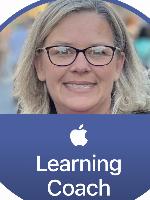

Event Information
Agenda for: Empowering Student Tech Teams: A Three-Year Growth Plan
1. Year 1: Getting Started
Building the Foundation
Selecting Team Members
Securing Support
Initial Training
2. Year 2: Expanding Our Teams and Skills
Team Growth
Real-World Exposure
Advanced Skills Development
Collaboration and Problem-Solving
3. Year 3: Continuing Growth and Learning
Expanding Expertise
Showcasing Student Success
Supporting the Community
4. Looking Ahead: Preparing for Future Success
Exploring Emerging Tech
Career and Leadership Development
Sustaining the Program
Closing Remarks: Q&A and Reflection
Supporting research for the presentation can be drawn from several key areas:
Digital Citizenship and Inclusivity:
Ribble, M. (2015). Digital Citizenship in Schools: Nine Elements All Students Should Know. This book explores best practices for teaching digital citizenship and the importance of inclusivity in tech education.
Student Leadership and Peer Support:
Cress, C. M., Astin, A. W., & Panos, D. (2010). The Role of Student Leadership in Creating a Diverse and Inclusive Campus Community. This research highlights how student leadership roles contribute to a more inclusive and supportive learning environment.
Hands-On Learning and Real-World Exposure:
Kolb, D. A. (2014). Experiential Learning: Experience as the Source of Learning and Development. Kolb’s work supports the value of hands-on learning and real-world exposure in developing technical and problem-solving skills.
Skill Development and Career Readiness:
National Research Council (2012). Education for Life and Work: Developing Transferable Knowledge and Skills in the 21st Century. This report emphasizes the importance of developing skills like leadership, communication, and problem-solving for career readiness.
Program Sustainability and Innovation:
Ladd, H. F., & Fiske, E. B. (2003). The Unequal Classroom: Teaching and Learning in Schools Serving Diverse Populations. This research provides insights into creating sustainable and innovative programs in diverse educational settings.
